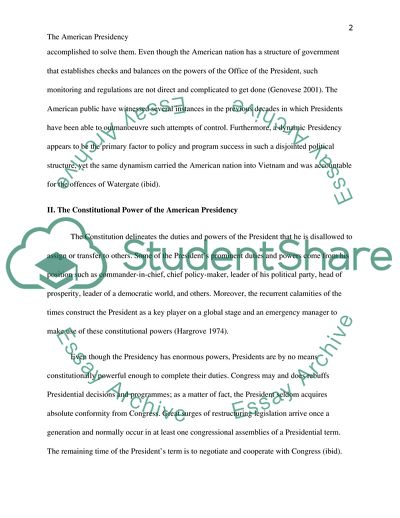Cite this document
(The American President as a Leader Report Example | Topics and Well Written Essays - 1250 words, n.d.)
The American President as a Leader Report Example | Topics and Well Written Essays - 1250 words. https://studentshare.org/politics/1719546-what-are-the-constitutional-and-extra-constitutional-powers-of-the-us-president
The American President as a Leader Report Example | Topics and Well Written Essays - 1250 words. https://studentshare.org/politics/1719546-what-are-the-constitutional-and-extra-constitutional-powers-of-the-us-president
(The American President As a Leader Report Example | Topics and Well Written Essays - 1250 Words)
The American President As a Leader Report Example | Topics and Well Written Essays - 1250 Words. https://studentshare.org/politics/1719546-what-are-the-constitutional-and-extra-constitutional-powers-of-the-us-president.
The American President As a Leader Report Example | Topics and Well Written Essays - 1250 Words. https://studentshare.org/politics/1719546-what-are-the-constitutional-and-extra-constitutional-powers-of-the-us-president.
“The American President As a Leader Report Example | Topics and Well Written Essays - 1250 Words”. https://studentshare.org/politics/1719546-what-are-the-constitutional-and-extra-constitutional-powers-of-the-us-president.


